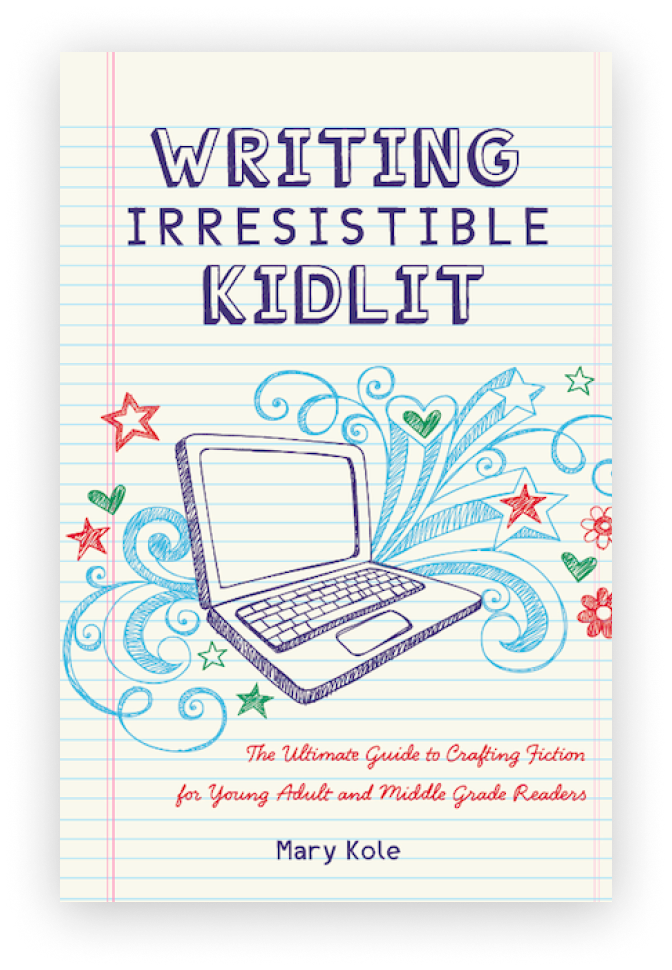Mental and Emotional Writer Tools to Cultivate Today
By Mary Kole
Mary Kole is a former literary agent, freelance editor, writing teacher, author of Writing Irresistible Kidlit, and IP developer for major publishers, with over a decade in the publishing industry.
Websites, books, and podcasts are full of advice about writer tools like plot arcs, characterization, and imagery writing. But after over a decade in the publishing business, I want to talk about the more holistic writer tools—the mental and emotional ones—that you can start cultivating today. Writing is an art form, but it is also a craft that requires dedication and skill. Writer tools come in many forms, so let’s dive into some of the less obvious skills that you can add to your toolbox.
Writer Tools: Patience
One of the most important mental and emotional writer tools that you could develop is patience. Writing can often be a long and arduous process, so it’s important to have patience with yourself and your work. (And also with the publishing industry, as it can take up to three years between a book deal and publication, unless you’re writing incredibly timely nonfiction.)
Don’t expect instant results, not from the business, not from yourself. Remember that good writing takes time, effort, and practice. Allow yourself the space to experiment, make mistakes, and grow as a writer. If you’re only focusing on the outcome, rather than the journey, you don’t yet have one of the most important writer tools: patience.
Writer Tools: Motivation
Writing can be mentally draining so it’s important to develop stamina and motivation in order to stay focused on the task at hand. Especially before you have a book contract, there isn’t anyone pushing you to produce pages or refine your knowledge base. Develop routines that allow you to focus on your work without getting distracted by committing to some kind of goal.
I’m not insisting on a daily writing practice, but you do want to do something regular, whether it’s a word count goal or a time goal. (Our Good Story Learning membership includes access to weekly writing sprints in our community.) Establishing goals can help you stay motivated, especially when it comes to drafting a large project, like a novel. It’s much easier to imagine completing an ambitious manuscript when you break down large projects into smaller tasks.
Finally, I strongly recommend nurturing your writer self, even when you’re not writing. Develop writer tools like playful creativity (check out Julia Cameron’s The Artist’s Way for a wonderful manifesto on taking your artist self seriously) and reading like a writer.
Not all of your writing time will result in words on the page and butt in the chair, but you also need to live life in order to write about it.
Writer Tools: Self-Respect
It’s normal for writers to experience self-doubt from time to time, especially when faced with a rejection letter (or several) for a big project. This is only normal. But allowing this doubt to fester can prevent you from achieving your full potential as a writer, and it might even develop into writer’s block (which is a myth, but seems very real to those writers who experience it). Make sure to talk and think kindly about yourself and celebrate even your smallest successes. All of the writers on shelves today respected themselves enough to keep going, and that’s why self-respect is one of my favorite writer tools to recommend.
Developing strong mental and emotional writer tools is key to not only getting ahead in the publishing business, but feeling good about your journey. Patience, motivation, and self-respect are all essential ideas for staying in the writing game and enjoying the ride.
This post contains affiliate links.

Click here to purchase Writing Irresistible Kidlit, my book on fiction craft for MG and YA novels, out from Writer's Digest Books. This will show you my writing craft philosophy and give you lots of valuable advice, including tips for the novel revision process and self-editing. There are over 35 example novels cited and discussed throughout. It’s a valuable resource for any writer’s toolkit.
Click here to purchase Irresistible Query Letters, my book on query letters, including over forty examples with comprehensive notes on each one. There’s a ton of submission advice, best practices, and insider information in these pages, and you’ll really enjoy seeing what other writers are doing in the slush.
Click here to purchase Writing Interiority: Crafting Irresistible Characters, my book on interiority and character creation. Explore your protagonist’s thoughts, feelings, reactions and interpretations, expectations, and inner struggles to create a rich, immersive experience. This guide will empower you to create characters who live and breathe on the page, fostering an unbreakable bond with your audience.





